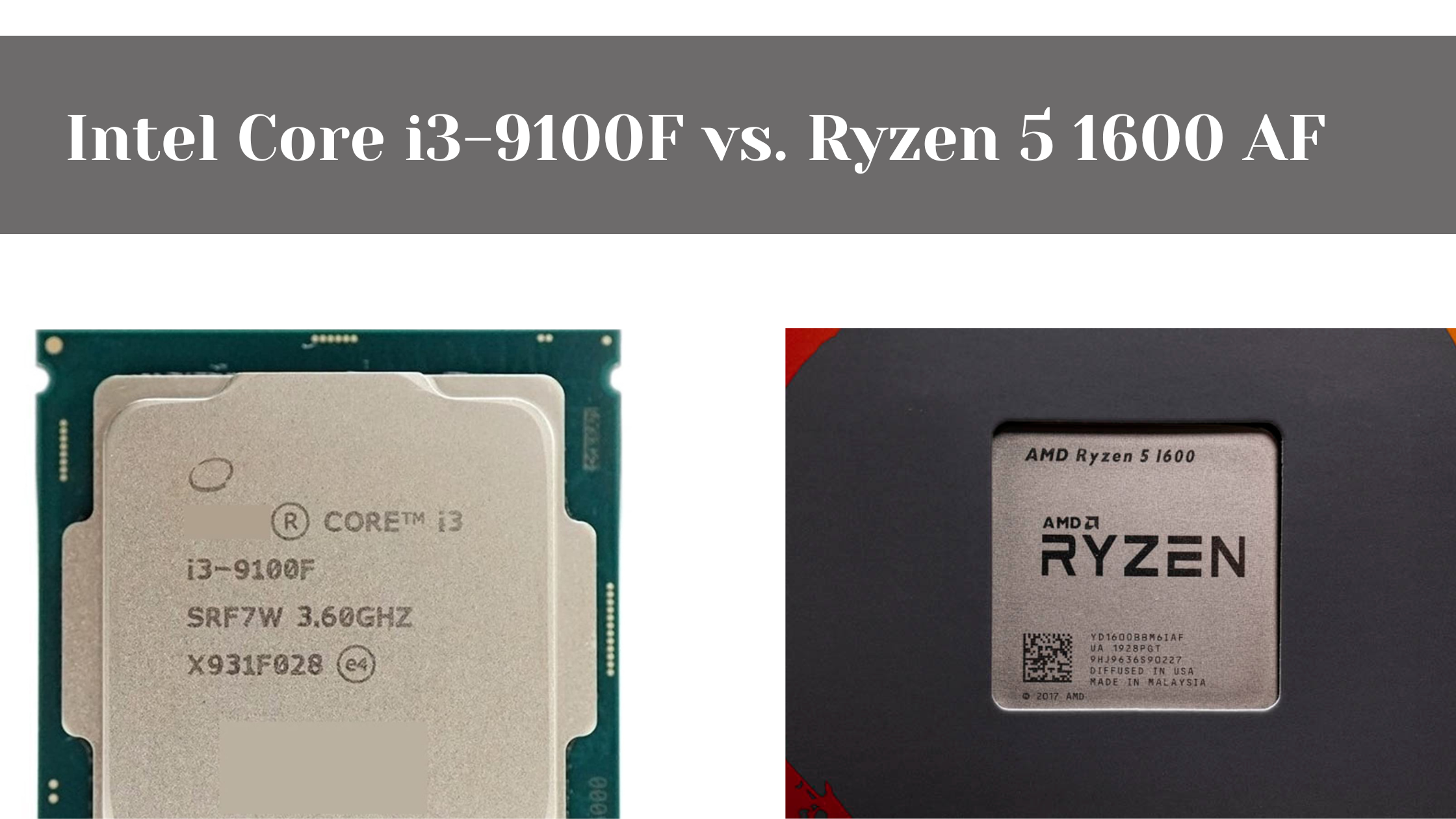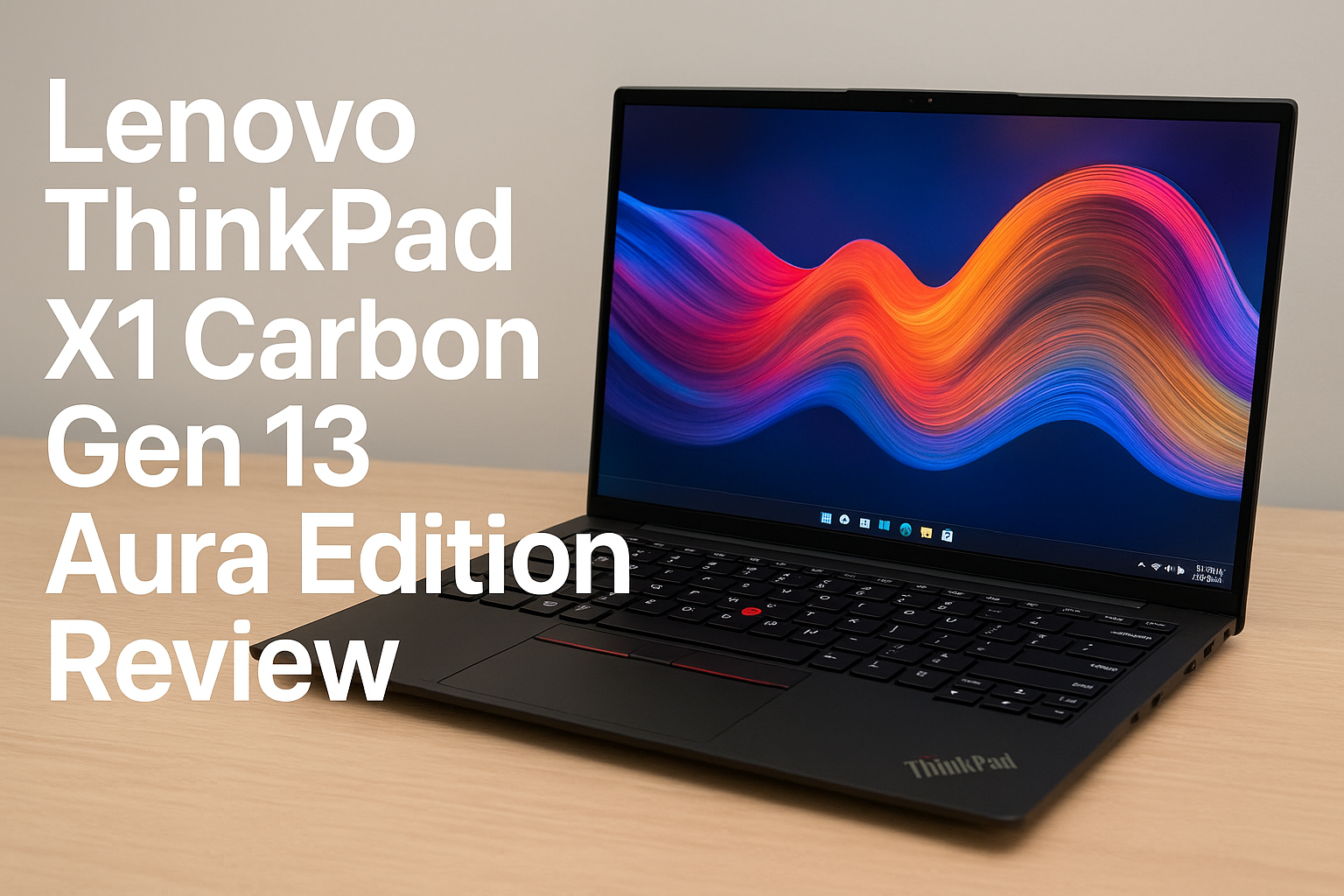Intel Core i3-9100F vs. Ryzen 5 1600 AF: A Detailed Processor Comparison

Intel Core i3-9100F vs. Ryzen 5 1600 AF
| Feature | Intel Core i3-9100F | Ryzen 5 1600 AF |
| Core Count | 4 cores | 6 cores |
| Thread Count | 4 threads | 12 threads |
| Base Clock Speed | 3.6 GHz | 3.2 GHz |
| Boost Clock Speed | No Turbo Boost | Up to 3.6 GHz |
| Architecture | Coffee Lake | Zen+ |
| Manufacturing Process | 14nm | 12nm |
| Cache Size | 6 MB Intel Smart Cache | 16 MB L3 Cache |
| TDP (Thermal Design Power) | 65W | 65W |
| Integrated Graphics | None (Requires discrete GPU) | None (Requires discrete GPU) |
| Supported RAM | DDR4-2400/2133 | DDR4-2666 |
| Max Memory Supported | 64GB | 64GB |
| PCIe Lanes | 16 PCIe 3.0 lanes | 24 PCIe 2.0 lanes |
| Unlocked Multiplier | No (Non-overclockable) | Yes (Overclockable with compatible motherboard) |
| Price (Typical) | More affordable (budget-friendly) | Slightly higher (provides more cores/threads) |
| Best For | Basic tasks, light gaming, everyday computing | Gaming, multitasking, content creation, future-proofing |
| Performance in Gaming | Adequate for lower settings and older titles | Better performance in modern games at higher settings |
| Performance in Content Creation | Not ideal for heavy workloads | Great for video editing, 3D rendering, and multitasking |
| Compatibility | Intel 300-series motherboards | AMD AM4 motherboards (broad compatibility) |
The Intel Core i3-9100F and Ryzen 5 1600 AF are often chosen by those who need reliable performance without breaking the bank. Whether you're a gamer on a budget, someone who uses their computer for everyday tasks, or you’re into light content creation, both processors will serve you well depending on your needs. However, understanding the key differences can make all the difference in your experience.
Intel Core i3-9100F: A Quick Overview
The Intel Core i3-9100F is part of Intel’s 9th generation Core series, designed to provide a good balance between performance and cost. With 4 cores and 4 threads, the i3-9100F can handle basic computing tasks efficiently, making it a solid choice for users who don’t require the absolute top-end performance.
The base clock speed of the i3-9100F is 3.6 GHz, which is respectable for everyday tasks like browsing the web, word processing, and playing less demanding games. However, this processor does not have Intel’s Turbo Boost technology, meaning its clock speed remains constant under load, and it doesn’t dynamically increase for more intensive tasks. One thing to note is that the i3-9100F doesn’t come with integrated graphics. This means you will need a dedicated graphics card, which could add to your overall cost if you’re building a PC from scratch.
This processor operates at a TDP (Thermal Design Power) of 65W, meaning it is relatively power-efficient compared to higher-end processors. While it might not perform as well in high-demand applications, it remains a great choice for those looking for a basic processor with the potential for some gaming on a tight budget.
Ryzen 5 1600 AF: A Quick Overview
On the other hand, the Ryzen 5 1600 AF is a 6-core, 12-thread processor from AMD, offering significantly better multitasking performance compared to the i3-9100F. This processor is based on AMD’s Zen+ architecture and uses a 12nm manufacturing process, which gives it a performance edge in certain tasks, especially those that benefit from multiple cores and threads.
The Ryzen 5 1600 AF has a base clock speed of 3.2 GHz, which is slightly lower than the i3-9100F. However, it can boost up to 3.6 GHz, which is on par with the Intel processor. This boost functionality means the Ryzen 5 1600 AF can adjust its performance depending on the workload, providing extra power when needed and scaling back when the task is less demanding.
Like the i3-9100F, the Ryzen 5 1600 AF also lacks integrated graphics, so a dedicated GPU is required for gaming or graphical tasks. However, the inclusion of 12 threads means the Ryzen 5 1600 AF will perform better in scenarios that demand multitasking, such as gaming while streaming, video editing, and running multiple programs simultaneously.
Despite being an older processor, the Ryzen 5 1600 AF offers excellent value, especially considering its 6 cores and 12 threads, which allow it to perform better in multi-threaded applications compared to many processors in a similar price range.
Core Count and Multitasking Performance
The most significant difference between these two processors lies in the core count and how they handle multitasking. The Intel Core i3-9100F is equipped with 4 cores and 4 threads, which is perfectly fine for casual users who engage in light gaming, office work, and general web browsing. However, for anyone who wants to run multiple applications simultaneously or play more demanding games, the i3-9100F may start to show its limitations, as it doesn’t handle multiple threads as efficiently.
In contrast, the Ryzen 5 1600 AF boasts 6 cores and 12 threads, making it a much better option for users who need to multitask or run resource-intensive applications. This increased core and thread count allows the Ryzen 5 1600 AF to handle complex workloads more effectively. Whether you're gaming while streaming, running productivity software alongside a web browser, or doing video editing, the Ryzen 5 1600 AF can provide a better and smoother experience.
Clock Speed and Performance
In terms of clock speeds, the Intel Core i3-9100F has a base clock of 3.6 GHz, which is higher than the Ryzen 5 1600 AF's base clock of 3.2 GHz. However, the Ryzen 5 1600 AF can boost up to 3.6 GHz, which allows it to compete closely with the i3-9100F when it comes to burst performance.
While the i3-9100F maintains its 3.6 GHz throughout its tasks, the lack of Turbo Boost means it might struggle during more demanding tasks, as it cannot scale its performance higher when needed. This means that while the i3-9100F will provide steady performance for light tasks, the Ryzen 5 1600 AF is more adaptable, offering better peak performance when required.
Gaming and Content Creation
When it comes to gaming and content creation, the Ryzen 5 1600 AF takes a clear lead. The additional cores and threads enable it to run modern games and applications more efficiently, even when multitasking. The i3-9100F, while capable of running many games at lower settings, might struggle with newer, more CPU-intensive titles. If you plan on gaming at higher settings or streaming your gameplay, the Ryzen 5 1600 AF will provide a better experience overall.
For content creators, the Ryzen 5 1600 AF is also the better option. Video editing, rendering, and multitasking with media-heavy applications will benefit greatly from the 12 threads. If you work with software like Adobe Premiere or run virtual machines, the Ryzen 5 1600 AF’s higher thread count will allow for a smoother and faster workflow compared to the i3-9100F.
Price-to-Performance Ratio
One of the key advantages of both processors is their affordability. The Intel Core i3-9100F is typically cheaper than the Ryzen 5 1600 AF, making it a great choice for those on a tighter budget or users who don't require much more than basic performance. The i3-9100F offers great value for simple tasks, light gaming, and everyday computing.
On the other hand, the Ryzen 5 1600 AF might be slightly more expensive, but the additional cores and threads provide much better value for money, particularly if you plan on using your system for more demanding tasks. The Ryzen 5 1600 AF is a more future-proof choice, as its extra performance will continue to serve you well for a longer period.
Conclusion: Which One Should You Choose?
Choosing between the Intel Core i3-9100F and the Ryzen 5 1600 AF depends largely on your specific needs. If you’re on a strict budget and only need a processor for basic computing tasks, light gaming, and everyday use, the Intel Core i3-9100F is an excellent choice. It offers solid performance for those who don’t need heavy multitasking or high-end gaming performance.
However, if you want a processor that can handle more demanding tasks such as modern gaming, content creation, or multitasking without slowing down, the Ryzen 5 1600 AF is the better option. With its 6 cores and 12 threads, this processor offers superior performance, making it a more future-proof investment for users who need versatility and longevity from their system.
Ultimately, the decision boils down to your needs and budget. Both processors provide strong performance at different price points, so it’s up to you to choose the one that aligns with your computing requirements.














